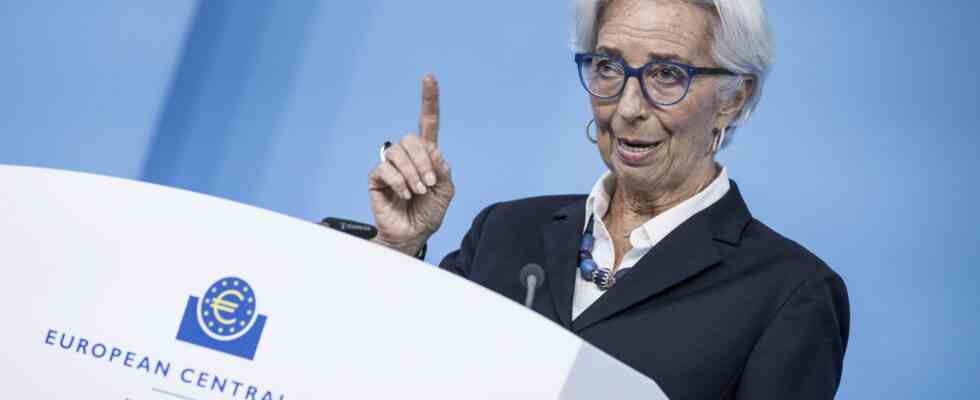Status: 11.05.2022 2:08 p.m
According to ECB boss Christine Lagarde, the key interest rate in the euro area could rise again for the first time in the summer after more than six years of a zero interest rate policy. An increase in July is considered increasingly likely.
ECB boss Christine Lagarde has announced a key interest rate hike in the summer. The hike could come a few weeks after bond purchases ended, said the President of the European Central Bank (ECB) in the Slovenian capital Ljubljana. The end of the purchases is planned for the beginning of the third quarter.
Inflation puts central bank under severe pressure
After an initial rate hike, further hikes should be gradual, Lagarde said. The Frenchwoman pointed to inflation, which is likely to remain high for some time. In April, inflation rose to 7.5 percent. That was the highest level since the introduction of the euro.
Other ECB officials had previously spoken of a possible rate hike in July, including ECB Director Frank Elderson. Bundesbank President Joachim Nagel called for an early turnaround in monetary policy. It must be avoided that prices and wages build up each other. “In any case, the exit from the monetary policy, which is very stimulating to the economy, should take place quickly and smoothly,” demanded the head of the Bundesbank. He also named July as a possible date for an increase in the key ECB interest rate.
Zero interest since 2016
The ECB lowered the key interest rate to zero in March 2016, and it has remained unchanged since then. The deposit rate at which banks can park money at the ECB is minus 0.5 percent. The institutes have to pay money for this – they often pass the costs on to customers in the form of custody fees and negative interest rates. Yesterday, however, ING announced an early end to penalty interest for the vast majority of customers.
Other western central banks have already raised their interest rates – such as the central banks in the USA and Great Britain.

